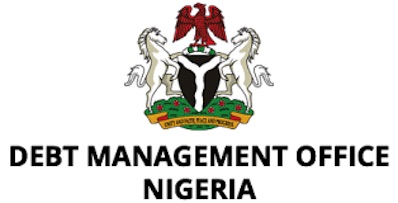Business News
Experts Predict National Economic Gloom in 2021

From Joy Okeke, Lagos
Economic experts, professionals, trade groups and former Vice president, Atiku Abubakar at the weekend raised the alarm over what they described as a bleak future for the nation’s economy and warned that unless urgent steps were taken, the looming recession would lead to severe job cuts and untold hardship on citizens.
The Manufacturers Association of Nigeria(MAN), the Lagos Chamber of Commerce and Industry(LCCI), Nigeria Employers Consultative Assembly(NECA) and Maritime law expert, Olisa Agbakoba (SAN), said unless serious measures were taken to address the nation’s weak economy, made worse by the COVID-19 pandemic and the recent EndSARS nationwide protests, the nation’s economic woes would multiply in 2021.
2021 Budget not Implementable – Atiku
Former Vice President, Atiku Abubakar, has picked holes in the 2021 budget being considered by the National Assembly, saying the financial proposal was not tenable in the present circumstances.
He said the country was broke and could not afford what he described as luxurious items in the N13.08 trillion budget proposal presented to the National assembly President Muhammadu Buhari
Atiku in his Twitter handler yesterday, stated that COVID-19 complicated the existing economic problem of the country.
“We cannot afford hand wringing and navel-gazing. We must act now, by taking necessary and perhaps painful actions.
“For a start, the proposed 2021 budget presented to the National Assembly on October 8, 2020, is no longer tenable.
“Nigeria neither has the resources nor the need to implement such a luxury heavy budget. The nation is broke, but not broken. However, if we continue to spend lavishly, even when we do not earn commensurately, we would go from being a broke nation to being a broken nation.
“Until our economic prospects improve, Nigeria ought to exclusively focus on making budgetary proposals for essential items, which include reasonable wages and salaries, infrastructural projects, and social services”, he said..
MAN, LCCI, NECA Foresee Weak Purchasing Power
The Manufacturers Association of Nigeria (MAN), the Lagos Chamber of Commerce and Industry (LCCI) and other economic experts, attributed the dipping to second recession to the #EndSARS crisis, which not only crippled economic activities for weeks, but also attacked business concerns and public property as well as widespread looting by hoodlums.
The experts lamented that losses from the incident, estimated at trillions of naira had further ravaged the already weak economy.
President of the Manufacturers Association of Nigeria (MAN), Mansur Ahmed, the Director-General of the Lagos Chamber of Commerce and Industry (LCCI), Dr Muda Yusuf and maritime law expert, Dr Olisa Agbakoba (SAN) made the assertion at the weekend in Lagos.
In order to navigate out of the recession, the experts recommended realignment of national priorities with a renewed focus on infrastructure and industrialization as well as increased support for Small and Medium Enterprises (SMEs).
The National Bureau of Statistics (NBS) in its Gross Domestic Product (GDP) report for Q3 2020, showed that Nigeria recorded GDP growth of -3.62% in Q3’2020.
“This follows a GDP growth of -6.10% growths recorded in Q2’2020, hence two consecutive quarters of negative GDP growth.
“Nigeria’s gross domestic product (GDP) recorded a growth rate of –3.62% (year-on-year) in real terms in the third quarter of 2020.
“Cumulatively, the economy has contracted by -2.48%. While this represents an improvement of 2.48% points over the –6.10% growth rate recorded in the preceding quarter (Q2 2020), it also indicates that two consecutive quarters of negative growth have been recorded in 2020.
“Furthermore, growth in Q3 2020 was slower by 5.90% points when compared to the third quarter of 2019 which recorded a real growth rate of 2.28% year on year, ” the NBS stated.
The NBS further explained: “During the quarter under review”, aggregate GDP stood at N39.089 trillion in nominal terms. This performance was 3.39% higher when compared to the third quarter of 2019 which recorded an aggregate of N37.806 trillion.
“This rate was, however, lower relative to growth recorded in the third quarter of 2019 by –9.91% points but higher than the preceding quarter by 6.19% points. For clarity, the Nigerian economy has been broadly classified into the oil and non-oil sectors.”
Govt Needs to Quickly Reflate Economy – Ahmed
President of MAN, Ahmed said that it was not unlikely that Nigeria would slide into recession given the uncertainties in global oil prices.
“The unrelenting negative economic consequences of the second wave of COVID-19 in many advanced countries is affecting our international trade partners and therefore the Nigerian economy is hit by these”, he said.
The MAN President noted that massive flooding in many food producing northern states affected farmers output, leading to high food prices and aggravated the upward surging inflation.
“The Federal Government must mobilise and work with the organised private sector and find amicable ways to encourage the productive and manufacturing and the agricultural sectors to reflate and reinvent the economy”, Ahmed said.
Need to Restore Normalcy in Forex Market – LCCI
Also, Yusuf, Director-General, LCCI, said the economic contraction was 3.62% in the third quarter as against 6.1% in second quarter. With these numbers, we can possibly say that the worst is over as the contraction in the third quarter was much less than what we experienced in the second quarter”, he stressed.
“Regrettably, the #EndSARS crisis may perpetuate the recession into the fourth quarter. The protests and the destruction that followed was a major setback for our economic recovery prospects.
“From an economic perspective, 2020 has been a very bad year. The worst in recent history. We are faced with the double jeopardy of a stumbling economy and spiralling inflation. The October inflation numbers of 14.23% was the highest in 10 months. In economic parlance, this condition is characterised as stagflation. The effects of these developments are evident in business and in households.
“Sales are slowing, profit margins are being eroded, production costs are escalating, unemployment is rising, poverty situation is worsening, purchasing power is weakening and there is a general social discontent. Regrettably, and as if these were not bad enough, the business community continues to grapple with unfavourable policy, institutional and regulatory challenges impeding investment. Government must remove these impediments to investments.
“We need to restore normalcy to the foreign exchange market by broadening the scope of market expression in the allocation mechanism. The ports system, especially the key institutions in the international trade processes need to be more investment friendly. Trade is critical to recovery.
“We should show greater commitment to the fixing of the structural issues to reduce production and operating costs for investors in the economy.
Following the #EndSARS experience, the state of internal security is beginning to impact negatively on investors’ confidence.
“Security presence is becoming less visible especially in the major cities. The psychological effects could adversely affect investment and economic recovery. We appreciate the setback suffered by the police as a result of the recent protests and we empathize with them. But we need to give security confidence to citizens and investors.
“Incidents of kidnapping, banditry, herders-farmer clashes have not abated. These also have grave implications for investments. Hopefully, the economy will resume to the path of growth in the first or second quarter of 2021, barring any new disruptions to the economy.”
Prune Wasteful Expenditure in 2021 Budget— Onyekpere
Lead Director, Centre for Social Justice Limited by Guarantee (CSJ), Eze Onyekpere on his part, said Nigeria was unfortunately descending into recession for the second time within the tenure of President Muhammadu Buhari’s administration.
Onyekpere explained that while the economic and social circumstances that led to this recession were deeply rooted in the dislocations occasioned by the coronavirus pandemic, it is also common knowledge that economic growth before the pandemic was tepid and had not accelerated to the progress previously reached before the dawn of 2015.
According to the CSJ boss, the recession was coming at a time of more than “quadruple whammy” with increased national indebtedness, reduced revenue inflow, accelerated insecurity and a divided nation as demonstrated in the just ended #EndSARS protests.
NECA Calls for Economic Policy Re-evaluation
The Nigeria Employers Consultative Association (NECA) has called for an urgent review of the country’s economic policies in view of the GDP data released by the National Bureau of Statistics, which confirmed that the nation has gone into a technical recession.
Speaking with Newsmen in Lagos, the Director General of NECA, Dr. Timothy Olawale stated that “the report of the NBS, showed the country’s GDP growth declined by 3.62% in Q3, 2020 after an earlier contraction of 6.1% in Q2.
“In summary, the GDP for Q1 to Q3 of 2020 stood at -2.48%. The Oil GDP fell by -13.89% from -6.63% in Q2 2020 and Non-Oil fell by -2.51% from -6.05% in Q2 2020. With negative GDP growth in two consecutive quarters, the economy has invariably entered into recession.”
Olawale noted that “the cumulative effects of the Covid-19 pandemic, which almost caused a global economic meltdown with serious impact for the Nigerian economy and the attendant lockdown could be said to have contributed to the negative contractions.
“It is, however evident that with the high level of inflation and unemployment rate, reducing exchange rate of the Naira and other macro-economic indices, there is need for urgent re-evaluation and reassessment of Government’s economic policies”.
While proffering a way out of the impending economic quagmire, the NECA Boss urged that there is urgent need to increase aggregate demand in the economy as a way to spark economic activities.
“Government should give more tax cut to promote business capital investment while encouraging local and foreign investment.
“Government should fast track the implementation of policies to diversify further its export potentials, mostly the huge stock of natural and agro resources in order to reduce pressure on the foreign reserves.
“We call for more robust and comprehensive expansionary fiscal and monetary policy packages to expeditiously reflate the economy out of the current crisis”, he concluded.
Business News
Tinubu Congratulates Dangote on World Bank Appointment

By Jennifer Enuma, Abuja
President Bola Tinubu has congratulated Alhaji Aliko Dangote, the President of Dangote Group, on his appointment to the World Bank’s Private Sector Investment Lab, a body tasked with promoting investment and job creation in emerging economies.
In a statement by Special Adviser on Media and Publicity, Bayo Onanauga, the President described the appointment as apt, given Dangote’s rich private sector experience, strategic investments, and many employment opportunities created through his Dangote Group.
The Dangote Group became one of Africa’s leading conglomerates through innovation and continuous investment.
Dangote Group’s business interests span cement, fertiliser, salt, sugar, oil, and gas. However, the $20 billion Dangote Petroleum Refinery and Petrochemicals remains Africa’s most daring project and most significant single private investment.
“President Tinubu urges Dangote to bring to bear on the World Bank appointment his transformative ideas and initiatives to impact the emerging markets across the world fully” the statement said.

The World Bank announced Dangote’s appointment on Wednesday, as part of a broader expansion of its Private Sector Investment Lab. The lab now enters a new phase aimed at scaling up solutions to attract private capital and create jobs in the developing world.
The CEO of Bayer AG, Bill Anderson, the Chair of Bharti Enterprises, Sunil Bharti Mittal, and the President and CEO of Hyatt Hotels Corporation, Mark Hoplamazian, are on the Private Sector Investment Lab with Dangote.
The World Bank said the expanded membership brings together business leaders with proven track records in generating employment in developing economies, supporting the Bank’s focus on job creation as a central pillar of global development.
Business Analysis
Nigeria Customs Generates over N1.75trn Revenue in 2025
By Joel Oladele, Abuja
The Nigeria Customs Service (NSC) has generated an impressive N1,751,502,252,298.05 in revenue during the first quarter of 2025.
The Comptroller-General (CG) of the Service, Bashir Adeniyi, disclosed this yesterday, during a press briefing in Abuja.
According to Adeniyi, the achievement not only surpasses the quarterly target but also marks a substantial increase compared to the same period last year, reflecting the effectiveness of recent reforms and the dedication of customs officers across the nation.
“This first quarter of 2025 has seen our officers working tirelessly at borders and ports across the nation.
I’m proud to report we’ve made real progress on multiple fronts—from increasing revenue collections to intercepting dangerous shipments,” Adeniyi stated.He attributed this success to the reforms initiated under President Bola Tinubu’s administration and the guidance of the Honourable Minister of Finance and Coordinating Minister of the Economy, Olawale Edun.
The CG noted that the revenue collection for Q1 2025 exceeded the quarterly benchmark of N1,645,000,000,000.00 by N106.5 billion, achieving 106.47% of the target. This performance represents a remarkable 29.96% increase compared to the N1,347,705,251,658.31 collected in Q1 2024.
Adeniyi highlighted the month-by-month growth, noting that January’s collection of N647,880,245,243.67 surpassed its target by 18.12%, while February and March also showed positive trends.
“I’m pleased to report the Service’s revenue collection for Q1 2025 totaled N1,751,502,252,298.05.
“Against our annual target of N6,580,000,000,000.00, the first quarter’s proportional benchmark stood at N1,645,000,000,000.00. I’m proud to announce we’ve exceeded this target by N106.5 billion, achieving 106.47% of our quarterly projection. This outstanding performance represents a substantial 29.96% increase compared to the same period in 2024, where we collected N1,347,705,251,658.31.
“Our month-by-month analysis reveals even more encouraging details of this growth trajectory,” Adeniyi said.
In addition to revenue collection, Adeniyi said the NCS maintained robust anti-smuggling operations, recording 298 seizures with a total Duty Paid Value (DPV) of ₦7,698,557,347.67.
He stated that rice was the most seized commodity, with 135,474 bags intercepted, followed by petroleum products and narcotics.
“From rice to wildlife, these seizures show our targeted approach,” Adeniyi remarked, noting the NCS’s commitment to combating smuggling and protecting national revenue.
Adeniyi also highlighted key initiatives, including the expansion of the B’Odogwu customs clearance platform and the launch of the Authorized Economic Operators Programme, which aims to streamline processes for compliant businesses. The NCS’s Corporate Social Responsibility Programme, “Customs Cares,” was also launched, focusing on education, health, and environmental sustainability.
Despite these achievements, the CG noted that the NCS faced challenges, including exchange rate volatility and non-compliance issues. Adeniyi acknowledged the need for ongoing adaptation and collaboration with stakeholders to address these challenges effectively.
Looking ahead, the NCS aims to continue its modernization efforts and enhance service delivery, ensuring that it remains a critical institution in Nigeria’s economic and security landscape.
“Results speak louder than plans; faster clearances through B’Odogwu, trusted traders in the AEO program, and measurable food price relief from our exemptions. We’ll keep scaling what works,” he concluded.
BUSINESS
NSIA Net Assets Hit N4.35trn in 2024
By Tony Obiechina Abuja
The Nigeria Sovereign Investment Authority (NSIA) yesterday disclosed that its net assets grew from N156bn in 2013 to N4.35 trillion in 2024.
Similarly, the Authority has remained profitable for 12 consecutive years, leading to cumulative retained earnings of N3.
74 trillion in 2024.Managing Director and Chief Executive Officer of NSIA, Aminu Umar- Sadiq made these disclosures at a media engagement in Abuja, highlighting its audited financial results for the 2024 fiscal year.
According to him, the results underscored the resilience of the authority’s investment strategy and the strength of its earnings, driven by a well-diversified revenue base and robust risk management practices, despite a challenging global macroeconomic and geopolitical environment.
Total operating profits, excluding share of profits from associates and Joint Venture (JV) entities, increased from N1.17 trillion in 2023 to N1.86 trillion in 2024, driven by the strong performance of
NSIA’s diversified investment portfolio, infrastructure assets, gains from foreign exchange movements, and derivative valuations.
In addition, Total Comprehensive Income (TCI), inclusive of share of profits from associates and JV entities, reached N1.89 trillion in 2024, reflecting a 59 per cent increase from N1.18 trillion in 2023.
Core TCI (excluding foreign exchange and derivative valuation gains) rose by 148 per cent to N407.9 billion in 2024 compared to N164.7 billion in 2023, supported by robust returns on financial assets measured at fair value through profit and loss, including collateralised securities, private equity, hedge funds, and Exchange-Traded Funds (ETFs).
Umar-Sadiq said the authority’s outstanding financial performance in 2024 reflected the “strength of our strategic vision, disciplined execution and unwavering commitment to sustainable socio-economic advancement.”
He said, “By leveraging innovation, strategic partnerships and sound risk management, we have not only delivered strong returns but also created value for our stakeholders
“As we move forward, we remain focused on driving economic transformation, expanding opportunities, scaling transformative impact and ensuring long-term prosperity for current and future generations of Nigerians.”
The CEO reaffirmed the authority’s commitment to managing the country’s SWF, and delivering the mandates enshrined in the NSIA Act.
He said NSIA remained poised to continually create long-term value for its stakeholders by delivering excellent risk-adjusted financial results, developing a healthy and well-diversified portfolio of assets and large-scale infrastructure projects, and enhancing the desired social outcomes.
He noted that NSIA was committed to its mandate of prudent management and investment of Nigeria’s sovereign wealth.
“In adherence to its Establishment Act, NSIA prioritises transparency, disclosure, and effective communication with all stakeholders and counterparties,” he said.
He pointed out that in the year under review, a new board, led by Olusegun Ogunsanya as Chairman, was appointed by President Bola Tinubu, in accordance with the provisions of the NSIA Act.
The new board will provide strategic direction and oversight, in addition to playing a pivotal role in critical decision making.
He remarked that under the guidance of the Board, the Authority will retain focus on its primary mandate of creating shared value for all stakeholders based on its continued adoption of corporate governance practices.
“NSIA prides itself an investment institution of the federation established to manage funds in excess of budgeted oil revenues and its mission is to play a pivotal role in driving sustained economic development for the benefit of all Nigerians through building a savings base for the Nigerian people, enhancing the development of the county’s infrastructure, and providing stabilisation support in times of economic misadventure,” he added.



























